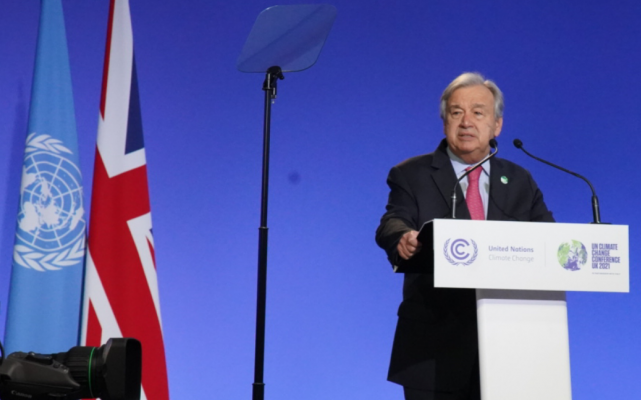UN Secretary General Antonio Guterres — at the COP26 — issued a roadmap to achieve a radical transformation of energy access and transition by 2030, while also contributing to net zero emissions by 2050.
The roadmap sets a timeline to ensure that 500 million more people gain access to electricity in a four years’ time by 2025, and 1 billion more people gain access to clean cooking solutions.
This would require that annual investment in access to electricity and clean cooking increase to $35 billion and $25 billion, respectively. The required investment represents only a small fraction of the multi-trillion dollar global energy investment needed overall, but would bring huge benefits to one-third of the world’s population.
“Close to 760 million people lacks access to electricity. Some 2.6 billion people lacks access to clean cooking solutions. How we produce and use energy is the main cause of the climate crisis. We must solve these challenges this decade,” Secretary General said.
The global roadmap is a major outcome of the UN high-level dialogue on energy held on September 24, at which more than 130 Heads of state and government and global leaders from business and other sectors announced more than $400 billion in new finance and investment for clean energy as part of voluntary commitments called Energy Compacts.
These Compacts are examples of the concrete actions and partnerships required under the global roadmap, in order to achieve clean, affordable energy for all by 2030 — SDG 7 — and net zero emissions by 2050, in support of the Paris Agreement on Climate Change.
By 2025, the roadmap calls for: fossil fuel consumption subsidies to be re-directed towards renewable energy and energy efficiency; a 100 per cent increase in modern renewables capacity globally; a doubling of annual investment in renewables and energy efficiency globally; and 30 million jobs to be created in renewable energy and energy efficiency.
These will help ensure an inclusive, green recovery by investing in poverty reduction, health, education and social protection.
The most immediate target in the roadmap calls for no new coal power plans to be in the pipeline after 2021.
This has been an area of mobilization in the lead-up to the energy summit, and a “No New Coal Power” Energy Compact was announced by the Powering Past Coal Alliance and UN-Energy with seven partner governments so far: Chile, Denmark, France, Germany, Montenegro, Sri Lanka and the UK.
By 2030, the roadmap calls for tripling annual investment for renewable energy and energy efficiency globally as well as global renewable power capacity, and phasing out coal power plants altogether by 2030 for OECD countries and globally by 2040.
At the same time, universal access to electricity and clean cooking solutions must be achieved, including electricity for all healthcare facilities and schools worldwide, and 60 million new jobs created in renewables and energy efficiency.

